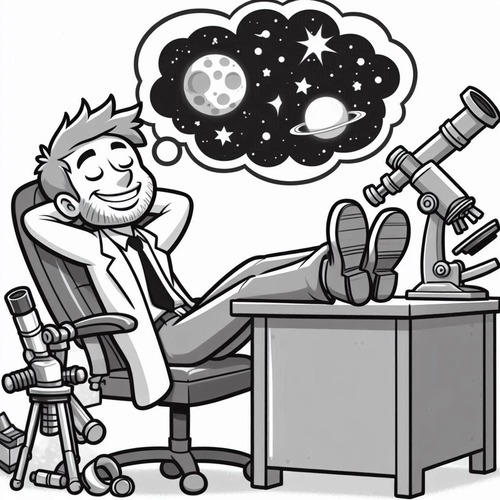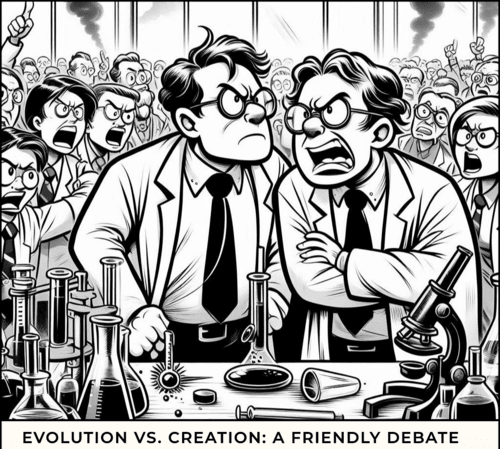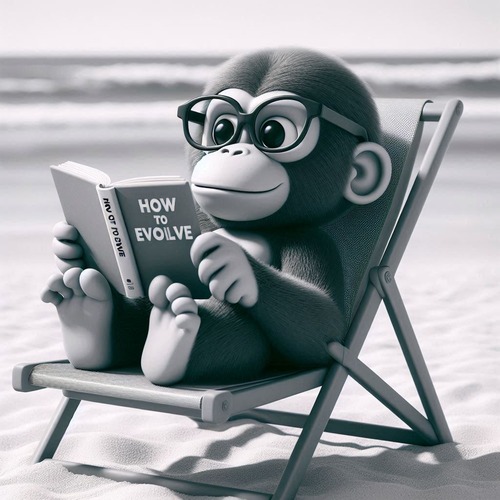Science, Faith, and the Grand Design of the Universe
Science Reinforces, not Buries, Faith in God
Have you ever wondered: surely there must be more to the universe than what science can explain? Doesn’t the evidence we see around us of the grand design of the universe point to a Creator? Granted, science, with its powerful tools and rigorous methods, has revolutionized our understanding of the cosmos. But can it answer the fundamental questions about the divine, about why we exist, and where we are ultimately headed?
The Boundaries of Scientific Inquiry: Science thrives on asking questions and seeking answers through experimentation and observation. It excels at explaining the “how” of the universe—how galaxies form and the laws of physics operate. It uses the scientific method, a process of forming hypotheses, testing them through experimentation, and refining those hypotheses based on the results. This rigorous approach has led to ground-breaking discoveries, from the vastness of the cosmos to the microscopic world of DNA.
However, science has limitations. It doesn’t delve into the realm of the “why.” It can’t tell us if there’s a creator behind the grand design of the universe, a guiding force behind the astonishing fine-tuning of physical constants that allow for life. For example, the Anthropic Principle suggests the universe’s fundamental laws seem specifically tailored to support the existence of life, but science can’t explain why these specific constants exist, or if there’s an intelligence behind this design.
Intellectual Giants and the Harmony of Faith: History is filled with brilliant scientists who saw no conflict between their scientific pursuits and their faith. Thinkers like Isaac Newton, who made ground-breaking discoveries in physics and mathematics, and Francis Collins, a geneticist who led the Human Genome Project, both found their scientific discoveries instilled a deeper sense of awe for a divine architect behind it all. These individuals exemplify how science and faith can coexist and even inform each other. Scientific understanding can deepen our appreciation for the divine, while faith can inspire a sense of wonder and a drive to explore the natural world.
Modern Discoveries and the Case for a Creator: Modern scientific breakthroughs haven’t diminished the concept of a higher power; they’ve often amplified it. The incredible “fine-tuning” of the universe is a prime example. Even slight variations in physical constants like the strength of gravity or the electromagnetic force could render life impossible. This delicate balance points towards a deliberate design, hinting at an intelligent force behind creation. Additionally, the vastness of the universe and the improbability of life arising spontaneously from non-life continue to spark wonder and inspire questions about the origins of everything.
The Quest for Meaning Beyond Molecules: Science sheds light on the intricate mechanisms of nature, but it can’t answer the existential questions that tug at the human heart: “What is our purpose?” “Why are we here?” “What happens after we die?” These profound inquiries explore the realm of philosophy and religion. Spiritual traditions offer guidance and meaning, providing a framework where science leaves off. Religion often delves into questions of morality, ethics, and the human condition, offering a source of comfort and purpose for many people.
The Resurrection: A Pillar Beyond Scientific Scrutiny: Christianity, for example, bases its faith not on scientific proof but on the historical reality of Jesus Christ’s resurrection. This cornerstone of the faith transcends scientific verification. The resurrection narrative is a foundational belief for Christians, offering a transformative experience that intersects with history but lies outside the realm of scientific testing. Science can analyse historical documents and archaeological evidence related to Jesus, but it cannot definitively prove or disprove the resurrection event itself.
A Convergence of Knowledge and Belief: Science and faith, ultimately, are not rivals but complementary paths in our quest for understanding. As science unveils the secrets of the physical world, religion contemplates the vast realm of the metaphysical. Each scientific discovery, from the elegance of DNA to the vastness of the cosmos, can be a gateway to a deeper sense of awe and wonder, a recognition of the magnificent tapestry woven into the fabric of existence. Finding a way to integrate scientific knowledge with our sense of purpose and place in the universe can be a deeply personal journey.
Evolution and Faith: Complementary Realities The theory of evolution, a cornerstone of modern biology, describes the process by which species undergo change over time through natural selection. Far from conflicting with theistic beliefs, this scientific narrative can be viewed as a testament to the ingenuity of the Creator. The dynamic and adaptive nature of life on Earth showcases a world imbued with potential and a capacity for diversity that could be seen as reflective of divine intention.
A Divine Symphony in Genetic Variation Rather than diminishing the role of a creator, the intricate mechanisms of evolution may highlight the sophistication of a divine blueprint. The genetic variations that drive evolutionary change could be perceived as notes in a grand symphony, composed by a higher intelligence, allowing life to flourish in harmony with the environment. This perspective invites believers to marvel at the creative power that has set the stage for life’s complex journey.
Conclusion: Science and faith, then, needn’t be seen as opposing forces. Science, with its rigorous methods, unveils the wonders of the universe, from the microscopic world of DNA to the vast expanse of galaxies. While it excels at explaining the “how” of the universe, it leaves room for the “why.” This is where faith steps in, offering meaning and purpose, grappling with the existential questions that science can’t answer.
Don’t let anyone tell you scientific advancements inherently disprove the existence of a higher power. In fact, many scientific discoveries, like the incredible fine-tuning and grand design of the universe, can ignite a sense of awe and wonder, pointing towards a Creator. Embrace the beauty of scientific exploration, but also hold onto the power of faith. They can coexist, enriching each other and leading us down a path of deeper understanding and a profound sense of wonder at the universe we inhabit.
Related Reads
- Doubting Darwin, Trusting Creation: 10 Challenges to Darwinian Evolution
- Conspicuous Gaps in the Evolution Narrative
- Exploring the Scientific Case for Creation
- The Cambrian Explosion: How is it a Challenge for the Evolutionist?
- The Universe’s Origin: Gaping Holes in Naturalist Explanations
- Creation or Evolution: Let the Evidence Speak for Itself
Editor's Pick

From Empty to Overflow: The Abundant Life Jesus Promised
(AND WHY YOU SHOULDN’T SETTLE FOR LESS) We're surviving, but are we thriving? If we're honest, there's a gap between [...]

What Does Jesus Save Us From?
THREE BIBLE TRUTHS ABOUT SALVATION "Jesus saves." We’ve seen it on bumper stickers, heard it shouted at sporting events, maybe [...]

If God Wants Everyone Saved, Why Aren’t They?
THE REFORMED VIEW ON GOD’S DESIRE VS HIS DECREE The question haunts every believer who has lost an unbelieving loved [...]

The One Man Mystery in Acts 17:26: Is It Adam Or Noah?
When the Apostle Paul stood before the philosophers at Mars Hill, he delivered an insightful statement about human unity: “And [...]

Megiddo Or Jerusalem: Where Did King Josiah Die?
Recent archaeological discoveries at Tel Megiddo continue to reveal evidence of Egyptian military presence during the late 7th century BC, [...]

Losing Your Life Vs Wasting It: How Are the Two Different?
AND WHY DID JESUS PRAISE THE FORMER? Jesus spoke one of the most perplexing statements in Scripture: “For whoever wants [...]

Can Christians Be Demon Possessed? What the Bible Teaches
Perhaps you’ve witnessed disturbing behavior in a professing Christian, or you’ve struggled with persistent sin and wondered if something darker [...]

Sacred Fury: What Christ’s Temple Cleansing Truly Means
Mark 11 records the crack of a handmade whip that echoed through the temple corridors. Tables crashed to the ground, [...]

Did Jesus Cleanse the Temple Twice?
OR DID JOHN DISAGREE WITH THE SYNOPTICS ON TIMING? One of sceptics’ favourite "gotcha" questions targets what they see as [...]

Self-Authentication: Why Scripture Doesn’t Need External Validation
"How can the Bible prove itself? Isn't that circular reasoning?" This objection echoes through university classrooms, coffee shop discussions, and [...]
SUPPORT US:
Feel the Holy Spirit's gentle nudge to partner with us?
Donate Online:
Account Name: TRUTHS TO DIE FOR FOUNDATION
Account Number: 10243565459
Bank IFSC: IDFB0043391
Bank Name: IDFC FIRST BANK






